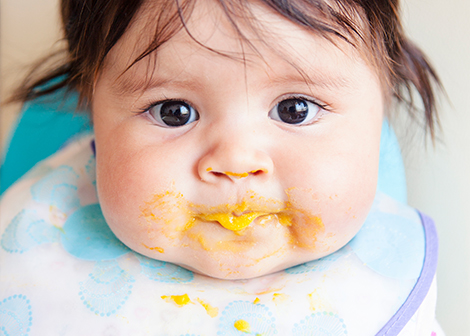Understanding your baby’s sleep needs, patterns and reasons for being unsettled will help you cope with the first few months of parenthood. This understanding, combined with learning some settling techniques, will help your baby become a good sleeper.
Some adults are better sleepers than others and this is true for babies and children too. Some children find learning the skill of sleeping and resettling easy, and some do not.
Sleep cycles
A ‘sleep cycle’ is, the time you go to sleep to the time you wake up again. When a baby or child wakes up from a sleep cycle they may not be able to get back to sleep without your help. Resettling is a skill that babies and children have to learn, with the help of their parents, and they need this help before they can resettle themselves and move on through to another sleep cycle unassisted.
- The average length of a child’s sleep cycle is 45-60 minutes and an adult’s is 60-90 minutes.
- Sleep cycles consist of Non – REM (non rapid eye movement) sleep and REM (Rapid eye movement) sleep.
- Non – REM sleep is very restful, deep, restorative sleep. There is little movement, breathing is deep, and heart rate is slow. This accounts for about 25% – 30% of your child’s sleep.
- REM sleep occurs after the Non– REM sleep and accounts for about 70% – 75% of your child’s sleep. During this type of sleep, the heart rate quickens, breathing becomes lighter and quicker, eye movements are rapid and blood flow to the brain is increased. The dream process occurs here and children form memories during this sleep.
- Children go over everything they have learned during the day during REM sleep. They practice what they are learning e.g. to sit up, crawl etc. They are forming essential neural pathways during this sleep stage.
- By the time babies are between three and seven months old most of them will wake up at least once or twice a night. However, some wake more frequently and some less frequently.
- Research shows that about 40% of babies are still waking during the night at 12 months of age.
How do I help teach my child to resettle after a sleep cycle?
Think about how your child fell asleep. If they fell asleep being rocked in your arms, they will need you to rock them back to sleep again, once they wake.
Ensure that your child has a definite wind down period as this gives them the chance to transition from being awake to falling asleep.
If you are trying to teach your child to resettle for the first time, do this during the day when you have more energy and it is less stressful for you.
Be realistic and do not expect them to learn the skill immediately. Take small steps.
When your child wakes, stop and listen to their cry and try to decide what they are telling you? Are they hungry? Do they sound like they’re in pain? Are they distressed? (Always attend to your child if they are distressed or in pain).
Find your starting point and work from there. If they have never been settled to sleep in their cot, then that’s your starting point. This progression may take a few weeks for them to learn. Give them lots of support by patting, ‘shhhing’ and reassuring until they calm.
If it gets too much for baby or you, stop, and try again when you are both ready.
Ensure that they are getting the majority of their feeds during the day. If breastfed, encourage them to empty the breast so they feel full.
If your baby is bottle-fed make sure your baby has a full feed and does not have frequent top ups.
Some common reasons why children wake during the night:
Hunger
If a child is not getting enough calories or if they are snacking and not getting a full feed they may not stay satisfied for long periods.
Health
If children are sick or in pain, they may not sleep well or be able to resettle.
Teething
Children can be unsettled for the period that a tooth is cutting through the gums.
Developmental stages
As children move through different stages they wake frequently. For example, children around 7-10 months of age may go through a separation anxiety stage and may wake frequently. They will do this to check if their parents are nearby to calm and comfort them.
Still learning to resettle
If they have never learnt how to resettle themselves, babies may wake and need help, i.e. to rock, pat, sing or be fed back to sleep.
Want to know more?
Pregnancy, birth and baby – Sleep and settling your baby
Raising Children Network – Babies sleep







